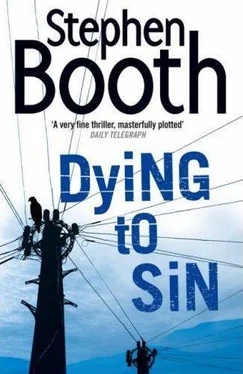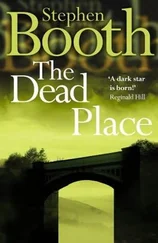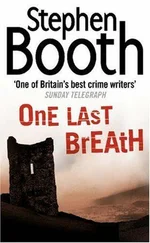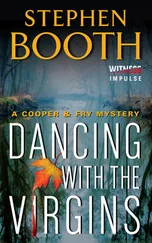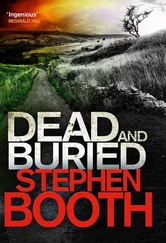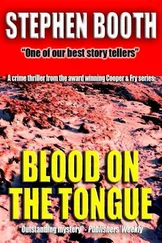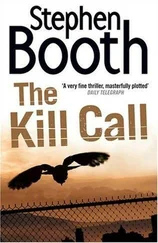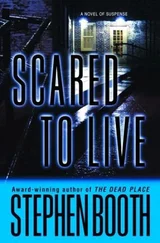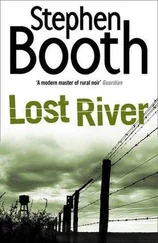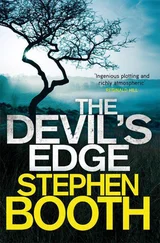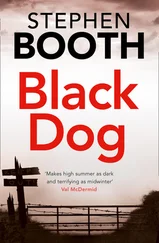Stephen Booth - Dying to Sin
Здесь есть возможность читать онлайн «Stephen Booth - Dying to Sin» — ознакомительный отрывок электронной книги совершенно бесплатно, а после прочтения отрывка купить полную версию. В некоторых случаях можно слушать аудио, скачать через торрент в формате fb2 и присутствует краткое содержание. Жанр: Полицейский детектив, на английском языке. Описание произведения, (предисловие) а так же отзывы посетителей доступны на портале библиотеки ЛибКат.
- Название:Dying to Sin
- Автор:
- Жанр:
- Год:неизвестен
- ISBN:нет данных
- Рейтинг книги:3 / 5. Голосов: 1
-
Избранное:Добавить в избранное
- Отзывы:
-
Ваша оценка:
- 60
- 1
- 2
- 3
- 4
- 5
Dying to Sin: краткое содержание, описание и аннотация
Предлагаем к чтению аннотацию, описание, краткое содержание или предисловие (зависит от того, что написал сам автор книги «Dying to Sin»). Если вы не нашли необходимую информацию о книге — напишите в комментариях, мы постараемся отыскать её.
Dying to Sin — читать онлайн ознакомительный отрывок
Ниже представлен текст книги, разбитый по страницам. Система сохранения места последней прочитанной страницы, позволяет с удобством читать онлайн бесплатно книгу «Dying to Sin», без необходимости каждый раз заново искать на чём Вы остановились. Поставьте закладку, и сможете в любой момент перейти на страницу, на которой закончили чтение.
Интервал:
Закладка:
So they’d missed their chance to capitalize on the myth of the countryside idyll, which had been widespread in the 1990s. Living in the countryside had become the city dweller’s dream. Features in the Sunday supplements suggested the countryside could provide the space to be yourself, to have the freedom to live your life without close neighbours, busy roads, the daily struggle to get to work. Nobody spoke of the downsides — the isolation, inadequate services, having to walk a mile to the nearest bus stop, if there were any buses. No one pointed out that within a few years there’d be no shops or hospitals, nor even a post office.
Feeling weary, Cooper got up to fetch himself a coffee. It had been a long day already, and he wasn’t finished yet. When Fry returned, she’d want hard facts, not some gloomy reflection on the state of the countryside.
He gazed out of the window while he drank his coffee and rubbed his weary eyes. The past fifteen years had dispelled that myth of the countryside idyll. People in rural areas lived shorter lives, had fewer medical facilities, and were more likely to get depressed and kill themselves. One in four people in the countryside lived below the poverty line, just as in urban areas. Their children were injured on the roads more often, it took a lot longer to get to a hospital if you suffered a heart attack, and if you used a mobile phone you were more likely to suffer from brain tumours than someone in a city. There wasn’t quite such a rush into the country any more.
Cooper went back to the records. The only big surprise was that Pity Wood had survived into the middle of the first decade of the twenty-first century. It had already been an anachronism by then, dead on its feet, sinking into debt.
He knew, from the articles in Farmers Weekly that Matt showed him, what the situation was. Farm incomes in the national park had fallen by seventy-five per cent over ten years. The potential return from livestock farming had ceased to match the investment of time and capital. Without subsidies, only a few dairy farms in the Peak District would be making any money now — a ludicrous average of four or five thousand pounds a year, as long as there was no allowance made for paying the farmer and his family. For beef and sheep farms, it was even worse. Their bottom line would be a minus figure.
So what had the Suttons done to try to escape this looming disaster? All the wrong things, it seemed to Cooper. A poultry enterprise had been the major decision in recent years. He remembered the old poultry sheds, empty of birds but still smelling powerfully of ammonia. No battery cages, but deep bedding, so there had been some attempt at humane treatment of the chickens, at least.
Cooper searched the records in vain for purchases of any major equipment, such as a straw spreader. It looked as though the Suttons hadn’t been able to find six thousand pounds or so to spend on such a luxury item, so presumably the straw in the poultry houses had been spread by hand.
The fields had still been cut for silage in the last few years, though there were no ruminants left at Pity Wood to eat it. No cattle or sheep to get through the winter. The Suttons must have intended to sell it to their neighbours — and, indeed, there were some records of earlier sales. But Cooper had seen this year’s cut of silage himself, still sitting in its bags in the yard.
When Fry returned to the office, Cooper was surrounded by papers that spread across two desks. He was holding a glossy four-page brochure, unable to control the expression of amazement on his face.
‘What have you got there, Ben?’
‘The estate agent’s details for the sale of Pity Wood Farm. The photographs make it look quite attractive. Somebody managed to find a sunny day. And they used a camera with a wide-angle lens. But not so wide that it showed the mud.’
‘“ A rare opportunity to purchase a farm holding with superb potential in a most sought-after area,”’ read Cooper. ‘“ Traditional farmhouse and adjoiningbarns with further buildings and grassland extending to ninety-five acres. Pity Wood Farm comprises a delightfully situated south-facing property in an unrivalled position. A range of stone outbuildings provide scope to extend to convert into holiday lets, subject to obtaining planning consent. The farmhouse requires some refurbishment, modernization and general upgrading …”’
‘You can say that again.’
‘“… but once complete will create a truly enviable residence in an idyllic rural location .”’
‘Funny how people use that word “idyllic” to mean “primitive”.’
Cooper didn’t reply. He was concentrating on trying to make all the buildings listed by the estate agent fit the map on the old conveyance and his memory of Pity Wood Farm. To the front of the property is a walled garden area and patio . That must be the overgrown patch where the old caravan was parked.
He made a quick note. Had Scenes of Crime got round to the caravan yet? Who had been living in there? He bet it had been overlooked, amid all the other excitement and conflicting priorities.
Three-bay general-purpose building of block construction, two corrugated-tin-sheet sheds, timber-framed slatted house with feed barriers and a slurry store, monopitch block-built shed, timber-framed cowshed, implement sheds, useful six-bay general-purpose building … The list seemed endless, yet some of those buildings must be in ruins. Well, the estate agent did mention renovation.
‘“ A mains water supply is available ,”’ said Cooper out loud.
‘A mains water supply,’ said Fry. ‘That’s a selling point, is it?’
‘In this area, yes.’
‘So what have you got from the farm records, Ben? What exactly were they doing at Pity Wood Farm to earn money — I mean, enough to make it profitable? And was Raymond relying on the sale of the farm to meet the cost of his residential care for the rest of his life?’
‘Apparently not. They brought Tom Farnham in to introduce some new enterprises. They could see that Pity Wood would never survive as a livestock farm alone. That was quite perceptive of them, you know. I mean, it’s obvious to everyone now, but in those days a lot of the old farmers were just crossing their fingers and hoping things would pick up. Most of them couldn’t face the idea of changing their way of life. A farm like Pity Wood, that’s been in the same family for generations — well, it would take someone very forward-looking to see what was necessary at such an early stage. From what I’ve heard of Raymond Sutton, he doesn’t seem that sort of person. He’s very traditional.’
‘It would have to be Derek, then. He was the younger brother, after all.’
‘Maybe,’ said Cooper. ‘How old would Derek have been at the time?’
Fry did a quick calculation. ‘Fifty-six when Tom Farnham came into the business.’
‘Mmm. I think we should ask Farnham how he met the Suttons. Did they invite him into the business, or did he do a sales pitch on them?’
‘You think he might be some kind of con man?’ asked Fry.
‘I think the Sutton brothers might have been an easy target for a clever talker.’
‘Would that fit your assessment of him?’
‘Possibly,’ said Cooper.
‘By the way, did you get anything from the IND?’
‘Hold on, let me check my notes.’ Cooper flicked back through his notebook. ‘OK, Section 8 of the Asylum and Immigration Act. The law makes it a criminal offence to employ a person who is subject to immigration controls and has no permission to work in the UK. The only statutory defence is if the employer can show that they carried out checks on the documents of potential employees. The confusing area seems to be the A8 countries, Diane.’
Читать дальшеИнтервал:
Закладка:
Похожие книги на «Dying to Sin»
Представляем Вашему вниманию похожие книги на «Dying to Sin» списком для выбора. Мы отобрали схожую по названию и смыслу литературу в надежде предоставить читателям больше вариантов отыскать новые, интересные, ещё непрочитанные произведения.
Обсуждение, отзывы о книге «Dying to Sin» и просто собственные мнения читателей. Оставьте ваши комментарии, напишите, что Вы думаете о произведении, его смысле или главных героях. Укажите что конкретно понравилось, а что нет, и почему Вы так считаете.
